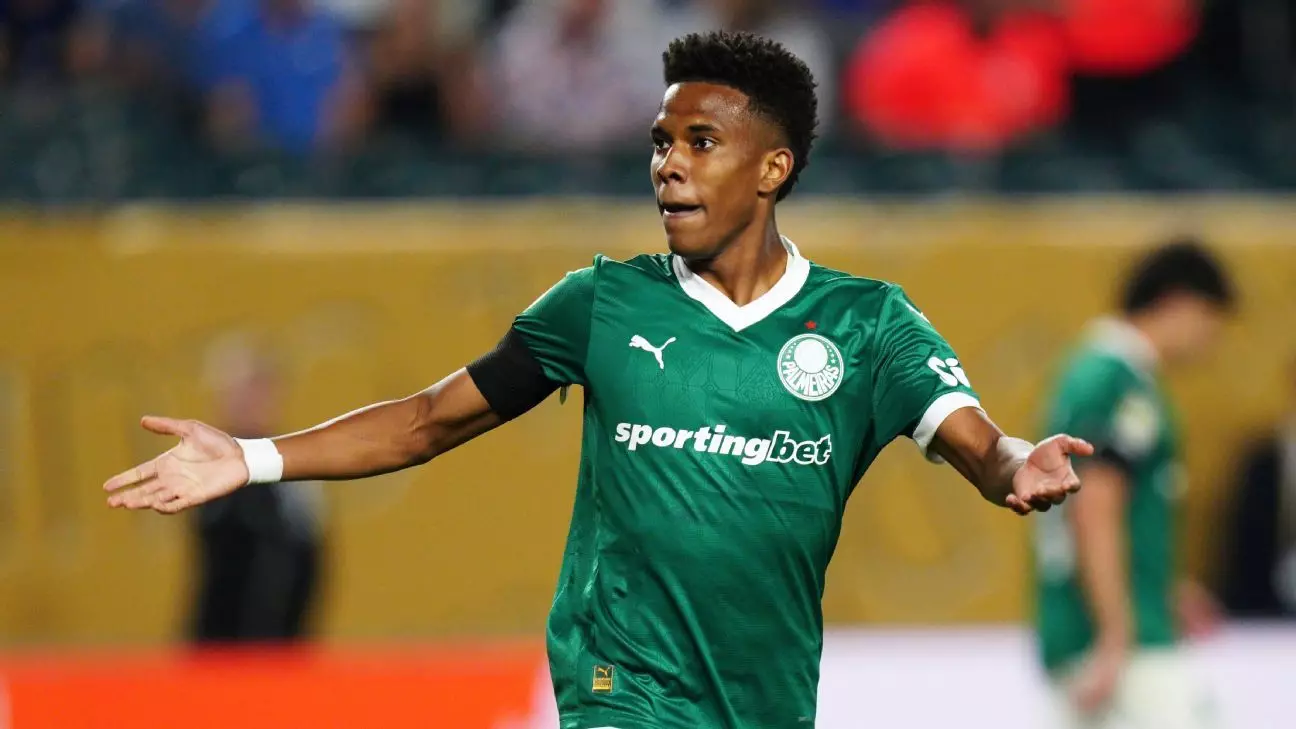In the contemporary landscape of football, the integration of young talents has become more than just a strategic move; it’s a testament to a club’s vision for sustained success. The recent emergence of 18-year-old Estêvão Willian in a high-stakes match exemplifies how nurturing raw talent can shake the foundations of established teams. His extraordinary performance against Palmeiras, culminating in a goal that showcased both skill and composure, underscores the profound potential of youth. Yet, beyond the immediate thrill of such moments lies the critical importance of a supportive developmental environment. Clubs that recognize the vulnerabilities of these young athletes and commit to fostering their growth often reap long-term rewards—both on and off the pitch.
The transfer of Estêvão from Palmeiras to Chelsea illustrates the modern economic and strategic dynamics of football. A hefty £33.8 million transfer fee underscores the global valuation of young European prospects from South America. However, high investment alone does not guarantee success; it demands meticulous nurturing and psychological support. Estêvão’s coach at Palmeiras, Abel Ferreira, emphasized this, urging Chelsea to “embrace” him and “take care of him.” This call reflects a deeper insight: talent without guidance can falter. The mental and emotional maturity necessary to thrive amid scrutiny and pressure is often underestimated, yet it is vital for transforming potential into consistent performance.
Balancing Confidence and Caution in Youth Development
The narrative surrounding Estêvão also offers pointers on how clubs can strike a delicate balance between confidence-building and cautious coaching. Ferreira’s comments serve as a reminder that gifted young players are still developing their resilience and understanding of professional expectations. While Estêvão’s showcase of skill and strength signifies a promising future, Ferreira wisely cautions Chelsea about the adjustment period that awaits him. Moving from the vibrant football scene in South America to the cold, demanding environment of England entails more than just an adaptation to weather; it involves cultural, tactical, and psychological shifts that can challenge even the most talented.
Maresca’s reaction further emphasizes this point, describing the evening as “the perfect night,” not solely because of the victory but also because of the exposure of Estêvão’s talent. The acknowledgment that young players need time to adapt resonates deeply with modern coaching philosophies. Encouraging self-confidence while providing structured mentorship is crucial. It prevents young athletes from feeling overwhelmed or underappreciated, which can sometimes lead to premature burnout or disillusionment.
The Role of Senior Mentors in Shaping Future Champions
The emphasis on mentorship extends beyond individual coaching; it requires a club-wide culture that values patience and guidance. Ferreira’s casual jest about “the sun not shining the same way” in England hints at the cultural nuances that many young players must navigate. Such lighthearted warnings are far from trivial—they acknowledge the unseen psychosocial hurdles that can impede performance if left unaddressed.
Chelsea’s responsibility extends beyond acquisition costs; they are custodians of Estêvão’s career trajectory. By fostering a supportive environment—through qualified coaching, mental health resources, and cultural acclimatization—they can transform raw talent into a consistent performer. The importance of this holistic approach cannot be overstated, especially for players from unfamiliar environments. The psychology of transition is often overlooked in transfer dealings but is arguably the most critical factor influencing long-term success.
Maresca’s comment about tomorrow’s potential alludes to the importance of patience and strategic development. Identifying a talented youngster is merely the first step; nurturing that talent into a world-class player demands continuous effort, sacrifice, and understanding. It’s a long-term investment—one that hinges on the club’s commitment to the individual’s well-being and growth.
The story of Estêvão and the reactions from Palmeiras and Chelsea serve as a microcosm of the evolving philosophy in football—one that values the potential of youth and recognizes the significance of nurturing it with care and strategic support. The true measure of a club’s greatness lies not solely in winning trophies but in their ability to develop players into responsible, resilient, and outstanding athletes who can carry their club’s legacy forward.


Leave a Reply